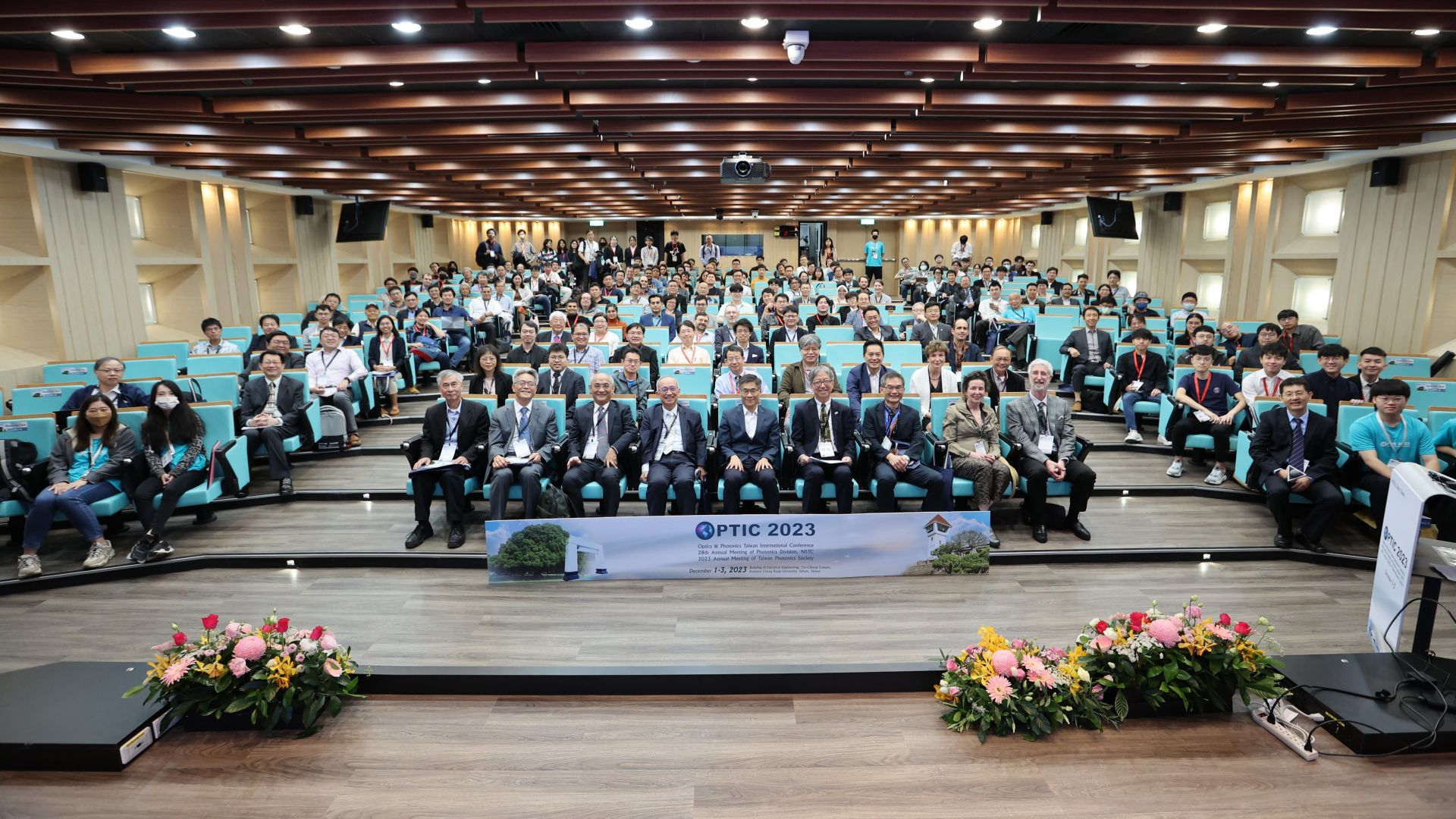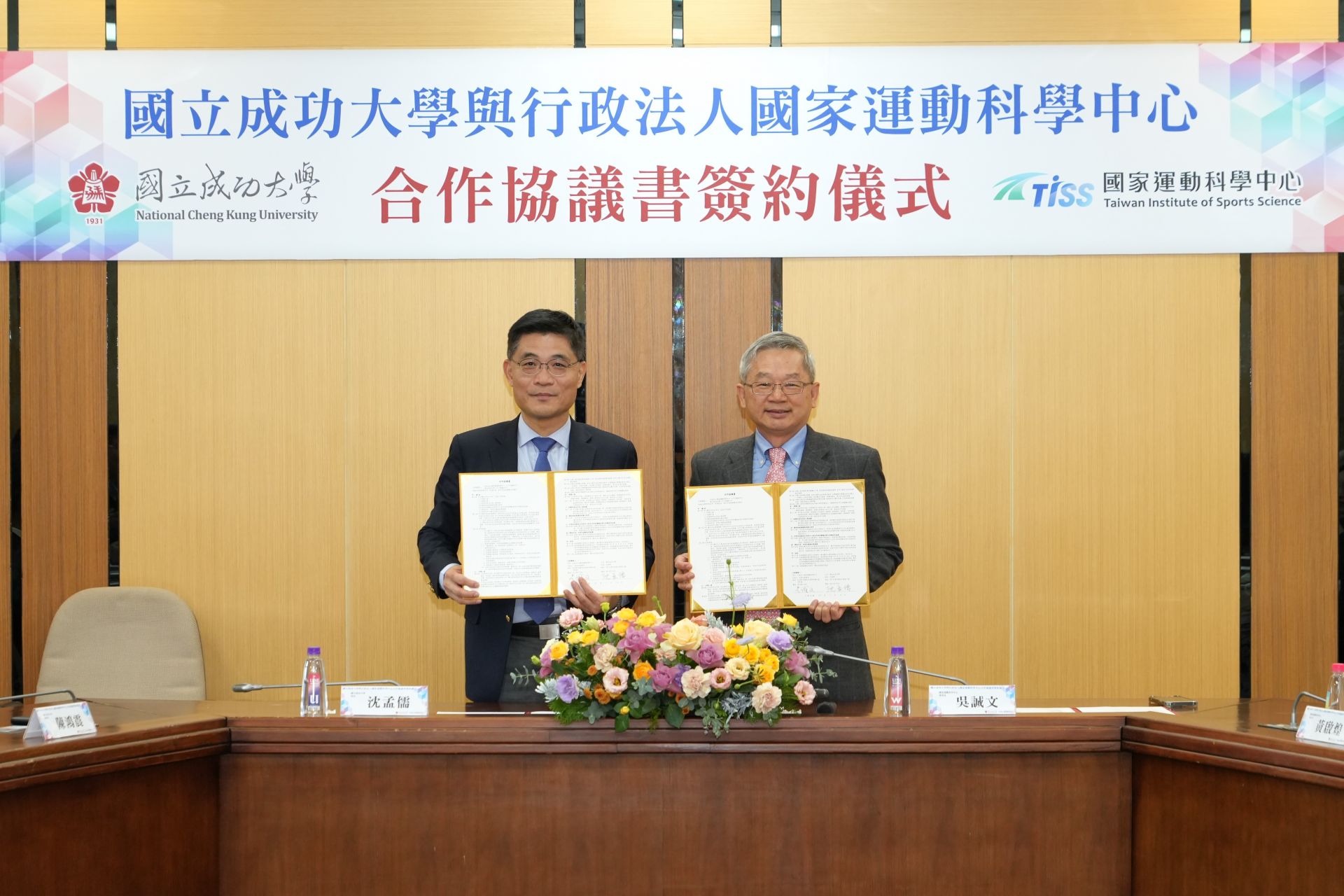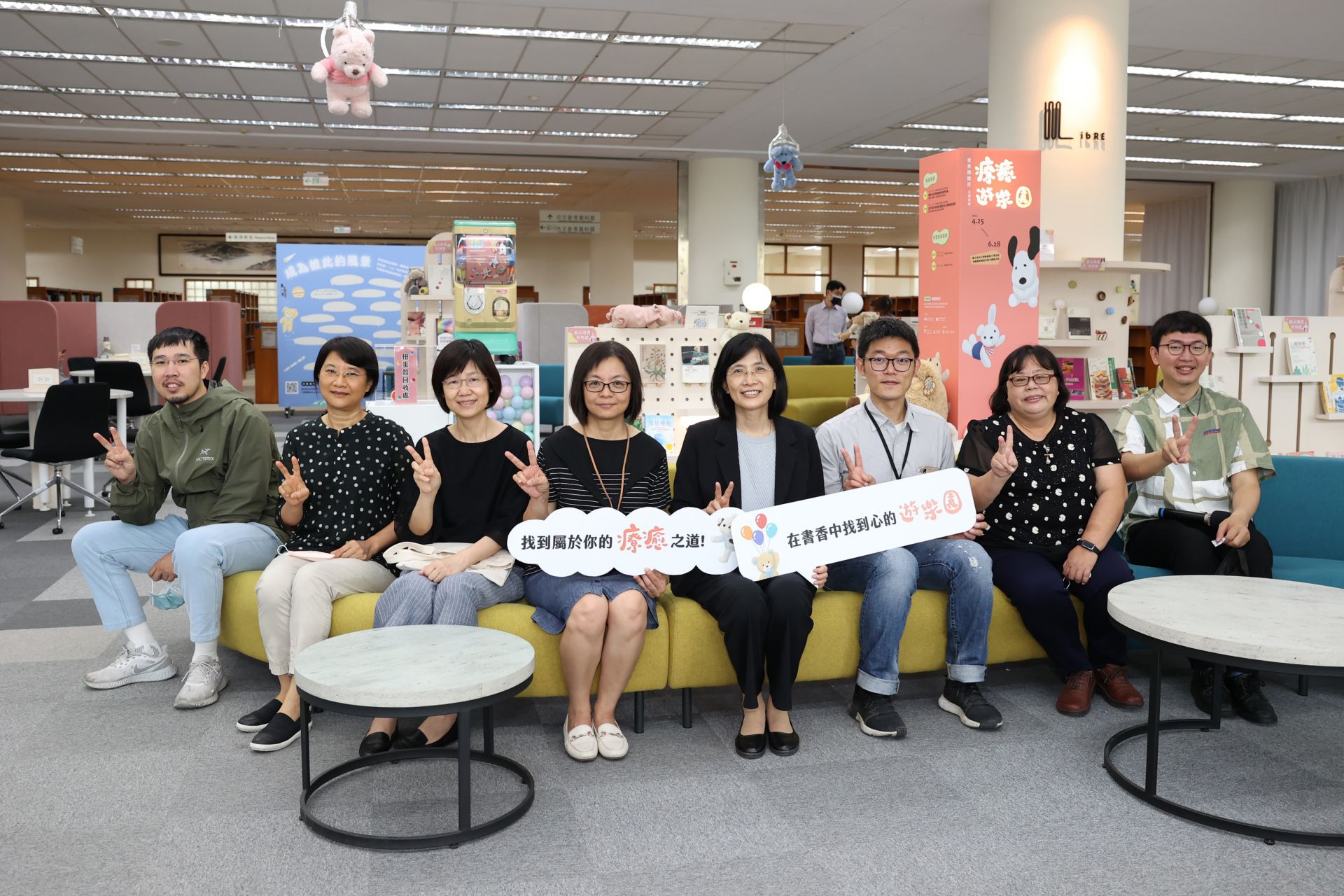The Department of Urban Planning at National Cheng Kung University (NCKU) officially inaugurated the "Y.Ku Lecture Hall" on December 20. This new platform aims to foster dialogue on "spatial planning" and "future challenges," becoming a key hub for innovation at the university. Funded and renovated by Y.Ku Planning Intl. Co., the lecture hall brings together academic and corporate strengths to drive educational innovation, igniting students’ passion for learning and enhancing their professional skills.
Experimental Education Platform: Bridging Disciplines and Generations
The Y.Ku Lecture Hall was established to create an experimental educational platform that bridges disciplines and generations. It aims to guide students in exploring their identities and seeking meaning through hands-on experiences. The hall fosters a deeper understanding of future environmental, social, human-centric, medical, and technological issues. By shifting from passive learning to collaborative creation, and through supportive social learning models, the platform encourages diverse exchanges and innovation.
Looking ahead, NCKU plans to invite leading domestic and international scholars and experts to share their latest research and practical experiences, enriching discussions on spatial planning and interdisciplinary issues.
At the inauguration ceremony, NCKU Executive Vice President Ching-Chang Lee thanked Y.Ku Planning’s General Manager Yi-ling Ku for their generous donation. He emphasized that the lecture hall will promote interdisciplinary collaboration on spatial planning. The first forum held at the hall focused on professional discussions of spatial human rights—a topic previously less explored. He noted that the hall would support collaboration across fields such as science, humanities, law, and culture, contributing to innovation and development for both the university and the community.
Inaugural Forum: Dialogue on Urban Space Development and Human Rights
Following the unveiling ceremony, the inaugural forum titled“Urban Space Development and Human Rights Dialogue: Property Rights, Equity, and Civic Engagement” took place.
In his opening remarks, Hsueh-Sheng Chang, the head of College of Planning and Design, highlighted the importance of fairness in urban space as a core value for planners. He addressed the challenges of balancing property rights with public interests, particularly in the context of revisions to the National Land Planning Act. He expressed hope that experts from law, planning, and practice would collaborate to explore innovative approaches to spatial planning while ensuring human rights. He also thanked Y.Ku Development Consulting Co., Ltd. for funding the renovation of this high-quality space to facilitate interdisciplinary dialogue.
Special guest speaker Ju Chen, Chairperson of the National Human Rights Commission, delivered the keynote address. Reflecting on her tenure as Mayor of Kaohsiung, she acknowledged NCKU’s pivotal role in supporting urban development through professional advice. She shared experiences from Kaohsiung’s transformation from an industrial city to a livable international city, particularly during its city-county merger, which expanded its jurisdiction by 18 times and presented challenges in addressing urban-rural disparities. Advocating for government-led land redevelopment, she emphasized prioritizing public interests to provide adequate parks, schools, and public facilities for residents.
Chairperson Chen concluded by emphasizing the need to incorporate human rights and social equity into urban planning, asserting that urban development is not merely about spatial arrangements but about enhancing the quality of life for all citizens. She expressed her hopes that the Y.Ku Lecture Hall would become a platform for dialogue and learning, encouraging more people to participate in shaping inclusive and sustainable cities.
Fostering Industry-Academia Collaboration for Sustainable Development
Yi-ling Ku, General Manager of Y.Ku Development Consulting, described the lecture hall as an experimental educational platform integrating academia and practice. It seeks to inspire students to engage in spatial planning and address contemporary and future societal challenges with innovative solutions. Echoing Y.Ku’s philosophy that “the environment is the continuity of time and the accumulation of space; planning is the balance of sustainability and development,” Ku announced plans to host several high-level lectures and forums annually. These events aim to promote interdisciplinary exchange and dialogue across generations, offering students broader platforms for learning and practice.
The company also plans to establish the "Y.Ku Scholarship" to support education and talent development by providing financial aid and academic incentives. This initiative aims to nurture dedicated students, uphold the educational ideals of the Department of Urban Planning, and inject new energy into NCKU’s academic development and social practices.
Experimental Education Platform: Bridging Disciplines and Generations
The Y.Ku Lecture Hall was established to create an experimental educational platform that bridges disciplines and generations. It aims to guide students in exploring their identities and seeking meaning through hands-on experiences. The hall fosters a deeper understanding of future environmental, social, human-centric, medical, and technological issues. By shifting from passive learning to collaborative creation, and through supportive social learning models, the platform encourages diverse exchanges and innovation.
Looking ahead, NCKU plans to invite leading domestic and international scholars and experts to share their latest research and practical experiences, enriching discussions on spatial planning and interdisciplinary issues.
At the inauguration ceremony, NCKU Executive Vice President Ching-Chang Lee thanked Y.Ku Planning’s General Manager Yi-ling Ku for their generous donation. He emphasized that the lecture hall will promote interdisciplinary collaboration on spatial planning. The first forum held at the hall focused on professional discussions of spatial human rights—a topic previously less explored. He noted that the hall would support collaboration across fields such as science, humanities, law, and culture, contributing to innovation and development for both the university and the community.
Inaugural Forum: Dialogue on Urban Space Development and Human Rights
Following the unveiling ceremony, the inaugural forum titled“Urban Space Development and Human Rights Dialogue: Property Rights, Equity, and Civic Engagement” took place.
In his opening remarks, Hsueh-Sheng Chang, the head of College of Planning and Design, highlighted the importance of fairness in urban space as a core value for planners. He addressed the challenges of balancing property rights with public interests, particularly in the context of revisions to the National Land Planning Act. He expressed hope that experts from law, planning, and practice would collaborate to explore innovative approaches to spatial planning while ensuring human rights. He also thanked Y.Ku Development Consulting Co., Ltd. for funding the renovation of this high-quality space to facilitate interdisciplinary dialogue.
Special guest speaker Ju Chen, Chairperson of the National Human Rights Commission, delivered the keynote address. Reflecting on her tenure as Mayor of Kaohsiung, she acknowledged NCKU’s pivotal role in supporting urban development through professional advice. She shared experiences from Kaohsiung’s transformation from an industrial city to a livable international city, particularly during its city-county merger, which expanded its jurisdiction by 18 times and presented challenges in addressing urban-rural disparities. Advocating for government-led land redevelopment, she emphasized prioritizing public interests to provide adequate parks, schools, and public facilities for residents.
Chairperson Chen concluded by emphasizing the need to incorporate human rights and social equity into urban planning, asserting that urban development is not merely about spatial arrangements but about enhancing the quality of life for all citizens. She expressed her hopes that the Y.Ku Lecture Hall would become a platform for dialogue and learning, encouraging more people to participate in shaping inclusive and sustainable cities.
Fostering Industry-Academia Collaboration for Sustainable Development
Yi-ling Ku, General Manager of Y.Ku Development Consulting, described the lecture hall as an experimental educational platform integrating academia and practice. It seeks to inspire students to engage in spatial planning and address contemporary and future societal challenges with innovative solutions. Echoing Y.Ku’s philosophy that “the environment is the continuity of time and the accumulation of space; planning is the balance of sustainability and development,” Ku announced plans to host several high-level lectures and forums annually. These events aim to promote interdisciplinary exchange and dialogue across generations, offering students broader platforms for learning and practice.
The company also plans to establish the "Y.Ku Scholarship" to support education and talent development by providing financial aid and academic incentives. This initiative aims to nurture dedicated students, uphold the educational ideals of the Department of Urban Planning, and inject new energy into NCKU’s academic development and social practices.
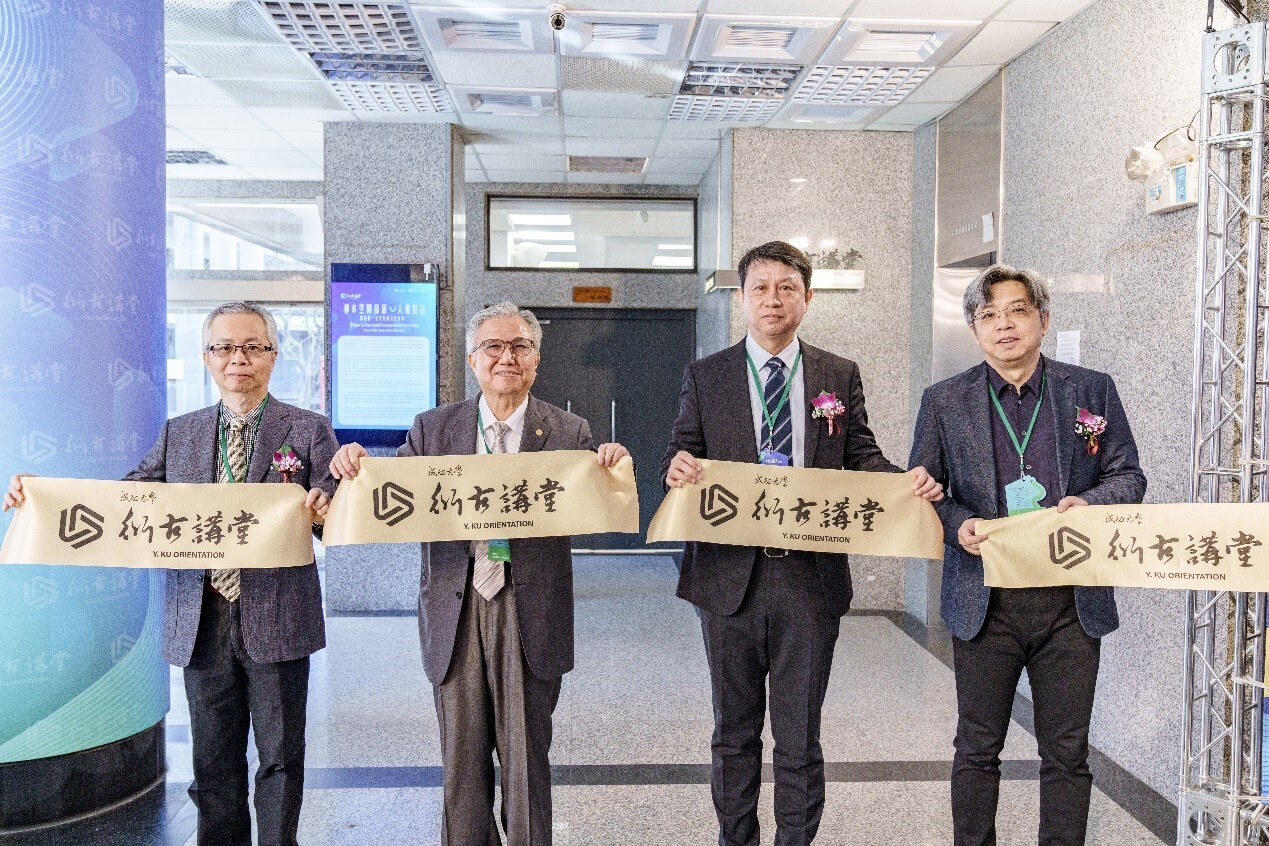
Grand Opening of the Y. Ku Lecture Hall at the Department of Urban Planning, National Cheng Kung University
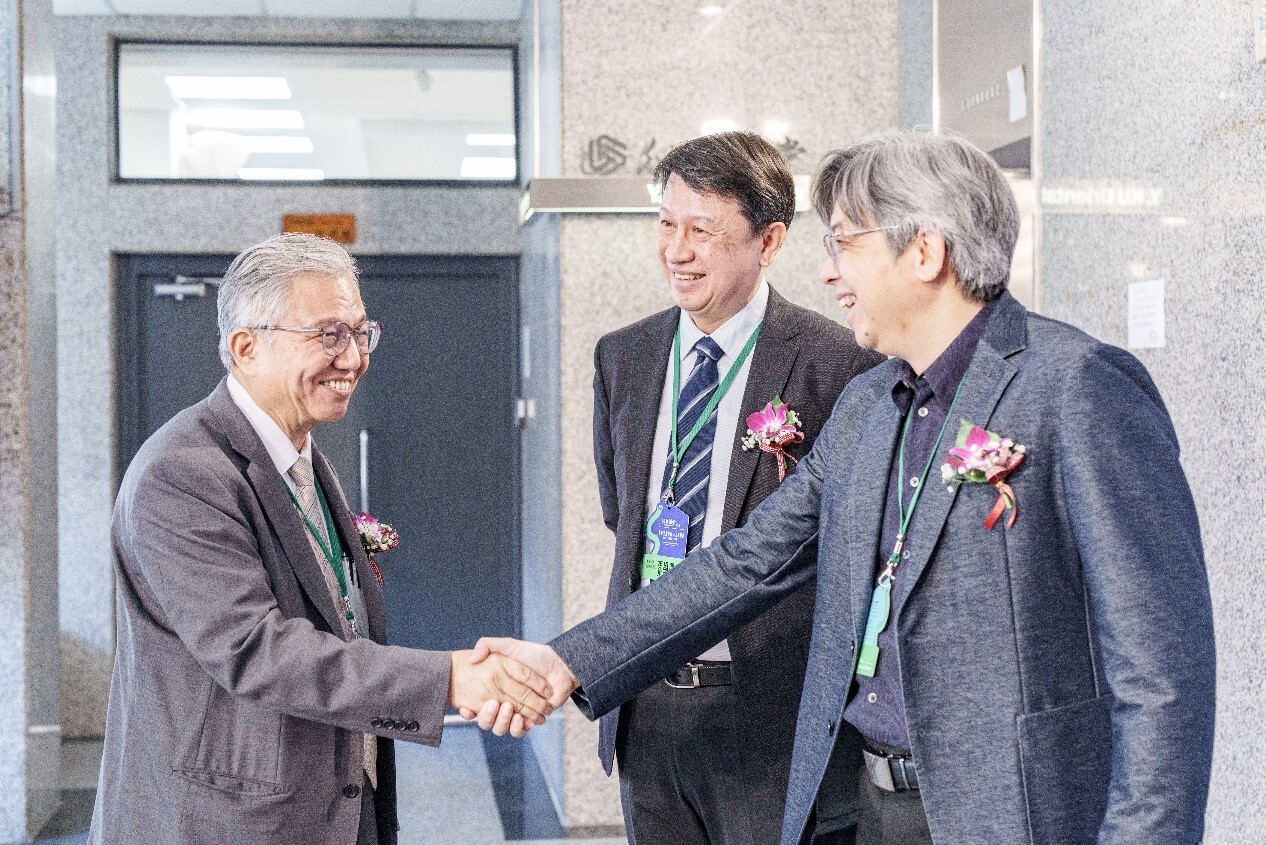
Vice President Ching-Chang Lee expressed gratitude to Y. Ku Planning for donating the new lecture hall, fostering cross-disciplinary exchange.

The inaugural forum focused on “Space and Human Rights: Pathways to Equity and Participation.”
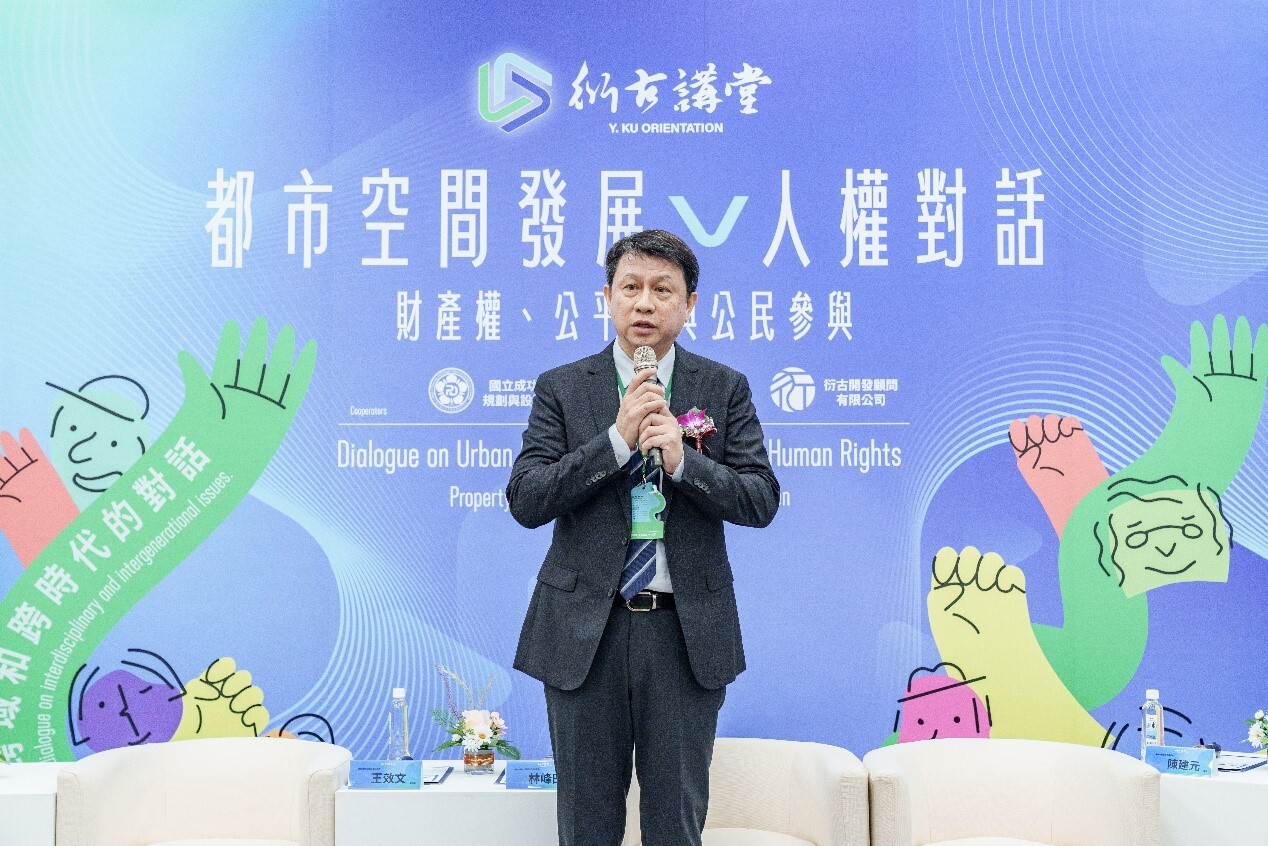
Dean Hsueh-Sheng Chang delivered the opening remarks: “A Critical Dialogue on Urban Space and Human Rights.”
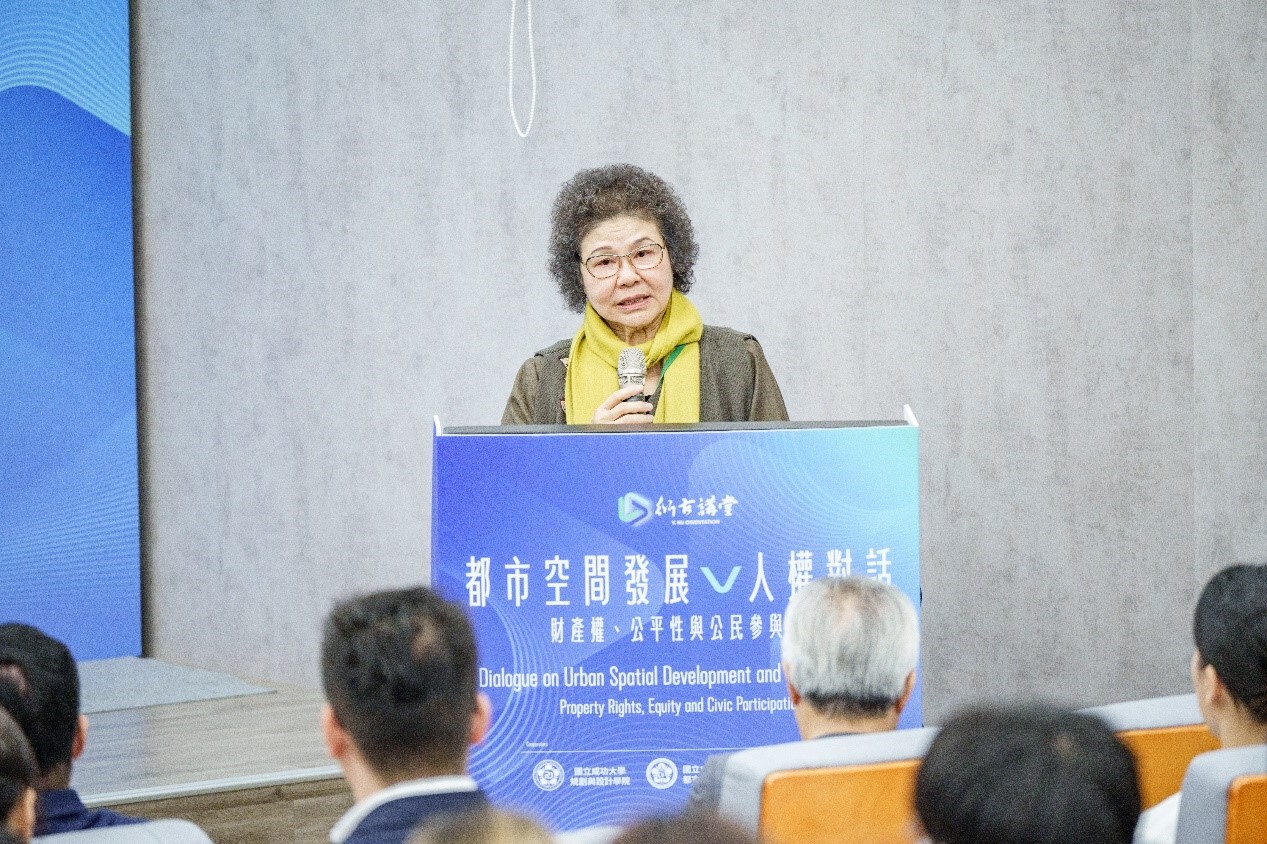
Chairperson Ju Chen also gave an address: “Creating a New Chapter of Urban Sustainability through Inclusion and Innovation.”




